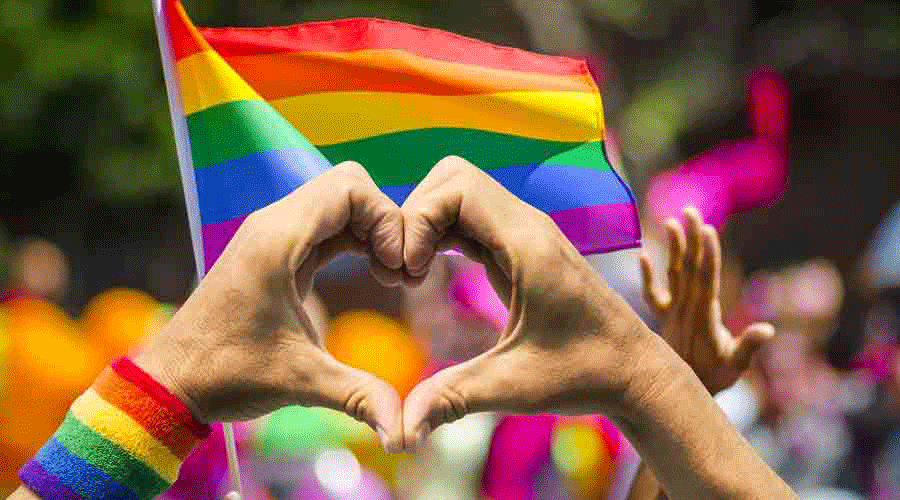The Centre has opposed in the Supreme Court the legalisation of same-sex marriages, citing “religious personal laws”, “societal morality”, “sanskar” and the “existence and continuance of the State”.
Allowing same-sex marriages will have far-reaching consequences including a requirement to amend the Hindu Marriages Act, Muslim Marriages Act, Christian Marriages Act and the Special Marriages Act, the Centre argued in an affidavit made public on Sunday.
“The prayer made by the petitioners (to legalise same-sex marriages is)... wholly unsustainable, untenable and misplaced. It is submitted that by and large the institution of marriage has a sanctity attached to it and in major parts of the country, it is regarded as a sacrament, a holy union and a sanskar,” the Centre said.
“In our country, despite statutory recognition of the relationship of marriage between a biological man and a biological woman, marriage necessarily depends upon age-old customs, rituals, practices, cultural ethos and societal values.”
The government went so far as to assert that heterosexual marriages have been “the norm throughout history and are foundational to both the existence and continuance of the State”.
Same-sex marriages are legal in many countries.
The government filed the affidavit through K.R. Saji, joint secretary in the law and justice ministry, after the apex court issued notices in response to over 20-odd public interest pleas moved by members of the LGBT community.
The petitioners have sought an amendment to the Special Marriages Act toallow same-sex marriages, arguing a denial would be unconstitutional in terms of Article 14 (right to equality) and 21 (right to life and personal liberty).
“…While there may be various other forms of marriages or unions or personal understandings of relationships between individuals in a society, the State limits the recognition to the heterosexual form,” the government said.
It clarified that “these other forms of marriages or unions or personal understandings of relationships... are not unlawful”.
Sources said solicitor-general Tushar Mehta had personally vetted the affidavit. Normally, such affidavits are cleared at the level of government advocates.
“In terms of Article 14, same-sex relationships and heterosexual relationships are clearly distinct classes which cannot be treated identically,” the government said.
“(The) special status which is granted to heterosexual marriage cannot be construed as a discrimination against same-sex couples under Article 15(1) or as a privileging of heterosexuality.”
Child-rearing
The Centre has argued that heterosexual marriages have an important role in the rearing of children and their mental growth.
“Celebration of a marriage gives rise to not just legal but moral and social obligations, particularly the reciprocal duty of support placed upon spouses and their joint responsibility for supporting and raising children born of the marriage and to ensure their proper mental and psychological growth in the most natural way possible,” it said.
Legislature’s domain
The government appeared to be telling the apex court to stay away from such policy decisions, arguing they belonged to the province of legislative wisdom.
It underlined that “recognition of marriage necessarily brings with it right to adopt and other ancillary rights” and stressed the need to have such issues “decided by the competent legislature” after debating the “social, psychological and other impacts on society, children, etc”.
Legalising same-sex marriages would open up issues of judicial separation, divorce, alimony and maintenance, disposal of property, guardianship and the like, which are the exclusive domain of the legislature, the Centre said.
“It is a competent legislature which reflects the collective wisdom of the nation alone,” the affidavit added.
Past rulings
The Centre cited several apex court judgments, including the 1998 judgment in Mr “X” vs Hospital “Z” which observed: “Marriage is the sacred union, legally permissible, of two healthy bodies of opposite sexes. It has to be mental, psychological and physical union. When two souls thus unite, a new soul comes into existence. That is how life goes on and on this planet.”
The government accepted that a five-judge constitution bench had in 2018 legalised consensual sex between adult members of the LGBT community, but said this did not allow the petitioners to claim that same-sex marriage is a fundamental right.
“It is submitted that the same has been adequately clarified by the Hon’ble Supreme Court in Navtej Singh Johar v Union of India (2018) wherein the Hon’ble Supreme Court held as under: ‘The above authorities capture the essence of the right to privacy. There can be no doubt that an individual also has a right to a union under Article 21 of the Constitution. When we say union, we do not mean the union of marriage, though marriage is a union’,” the affidavit said.











